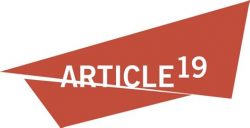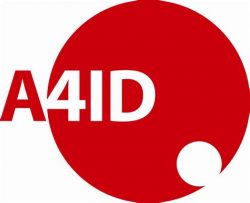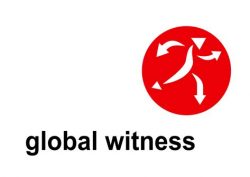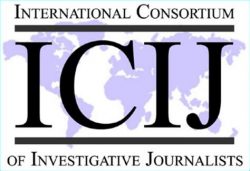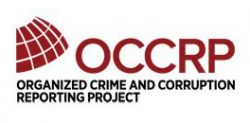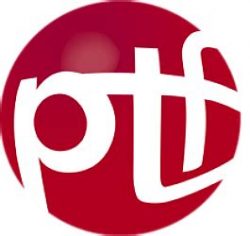Where Can I Find Support and More Information?
If, after reading this Guide, you are thinking about taking legal action to challenge corruption. We recommend seeking support from an anti-corruption organisation and undertaking further research. The links below may help you with this.
What Organisations Could Help Me? Pro bono services
(a) International NGOs
- Article 19 is an international organisation recognised for its advocacy of media freedom and for protecting against media restrictions, which includes protection of journalists in danger for reporting corruption.
- Advocates for International Development has an international pro bono broker service which provides legal advice to organisations that require particular legal expertise.
- Global Integrity creates alliances with partners across the world: civil society organizations, governments, multi-stakeholder initiatives, donors, and others, helping them to design and implement innovative, learning-centered, and adaptive approaches to addressing complex governance-related development challenges.
- Global Witness undertakes campaigns and investigations into corruption across a wide range of sectors. Their investigative reports can provide valuable evidence into corruption in different countries.
- The International Consortium of Investigative Journalists is an organisation that investigates and reports on stories across the world, as well as a network composed of hundreds of investigative reporters in different organisations. They have a secure platform where whistleblowers can submit tips and reports of suspected corruption.
- Similar organisations include the Global Investigative Journalism Network.
- By developing and equipping a global network of investigative journalists and publishing their stories, the Organized Crime and Corruption Reporting Project exposes crime and corruption so the public can hold power to account.
- The Partnership for Transparency provides grants and technical assistance to individuals and groups working on good governance and anti-corruption projects.
- Transparency International is a global movement dedicated to fighting corruption. They have chapters in more than 100 countries that can provide support and expertise in the fight against corruption.
- U4 is a research institute that provides resources, papers and training on anti-corruption strategies and issues.
![]()
- PILnet brings together lawyers and advocates worldwide to use the law to protect civil society and the communities it serves. It provides organizations with high-quality free legal assistance and resources, and connects lawyers and civil society organizations.

- Thomson Reuters Foundation Trust Law is a global pro-bono clearinghouse that connect CSOs with a global network of lawyers that can provide free legal assistance.

- The Vance Center provides legal representation to civil society organizations, as well as international human rights bodies, around the world, in partnership with leading law firms on a pro bono basis. It builds the capacity of the legal profession in pro bono practice ethics, and diversity by engaging law firms, bar associations, law schools, and pro bono clearinghouses with innovative initiatives.

- ISLP provides top-tier pro bono legal services to governments, civil society actors, and social enterprises, focusing on accountability and transparency/anti-bribery and anti-corruption, and other areas.
 International Lawyers Project
International Lawyers Project
ILP’s global network helps NGOs and investigative journalists whose work follows this multi-jurisdictional path. Alongside ILP’s traditional role organising representation, advice and trial monitoring for journalists uncovering corruption who have been subject to unlawful arrest, imprisonment, and harassment, ILP supports civil society and investigative media consortiums hoping to exploit new data from large corruption leaks to make corrupt actors accountable and raise awareness in safe havens, such as the UK of how professional enablers launder these illicit funds.
(b) National Organisations
The most important source of support you can often get is from lawyers and organisations who work in your country or local community.
Check to see if any of the following groups could help you:
- Local or national trade unions
- Local civil society organisations
- Community groups
- Pro-bono lawyers in your country who offer free legal advice
- Law centres in your community or a nearby city
Below are a few examples of national anti-corruption organisations:
- Anti-Corruption Coalition Uganda: The coalition is dedicated to anti-corruption advocacy in Uganda, and they have a database with a range of reports and materials on corruption issues in Uganda.
- Corruption Watch South Africa: Corruption Watch undertakes campaigns and investigations into corruption in South Africa. They often pass the results of their investigations to the relevant authorities to take action on their behalf.
- Impunidad Cero: Impunidad Cero is an organisation in Mexico that undertakes investigations into impunity and corruption. Their reports have uncovered widespread corruption in a range of sectors.
- Transparency International National Chapters: Transparency International has more than 100 chapters locally established in almost all over the world. They consist of independent organisations that carry out a range of activities including training public servants, data collection and publication and advocacy for victims of corruption.
International organisations and lawyers’ networks may be able to help you find support locally. Some examples are listed below:
Key Resources:
The UNCAC Coalition is a civil society platform of organisations in Africa, SouthEast Asia, Latin America and SouthEast Europe who work on anti-corruption issues within the framework of the United Nations Convention Against Corruption. After following the link, click on your region to find out what organisations in your country are part of the platform. These will be organisations working on corruption issues in your country that could assist you. You can also find reports on the platform regarding different countries’ progress on implementing the UN Convention Against Corruption.
Where Can I Learn More?
The following key resources where identified in the guide. Read these if you are thinking about legal action and these are relevant to your case:
- Anti-Corruption Authorities Website: Use to find information about anti-corruption authorities in your country.
- Anti-Corruption Glossary: Use this to get a brief explanation of different types of corruption.
- Anti-Corruption Knowledge Hub: Use the Knowledge Hub to find research papers, studies and guides on corruption issues in specific countries or sectors.
- Global Guide on Whistleblower Protection: Use the guide to get an overview of whistleblower protections available in 16 different countries.
- G20 Study on Whistleblower Protection: Use this resource if you want to get further information on whistleblower protection.
- Legal 500 Q & A Chapters on Bribery and Corruption: Use the Chapters to get an introduction into the anti-corruption legal framework in 22 different countries.
- OECD Anti-Corruption and Integrity Hub: Use the Hub to find papers and studies on corruption issues in specific countries and sectors.
- UNCAC Civil Society Platform: Use to find organisations in your country who are working on anti-corruption issues.
- UNODC Track Portal: Use the Track Portal to find out information on anti-corruption legislation and cases in your country.
Key Resource: Transparency International Helpdesk
Transparency International’s Anti-Corruption Helpdesk service provides timely and tailored answers to corruption-related questions from national chapters of Transparency International and certain partners of TI.
Questions are answered within ten working days in the form of short briefings. Each answer provides a synthesis of the state of research on a particular topic, lessons learnt from case studies as well as practical recommendations for anti-corruption approaches.
Topics cover a wide range of corruption-related issues, from the effectiveness of anti-corruption agencies, to tackling corruption in post-conflict situations, to recent trends in anti-bribery laws. Check if there has been a briefing on an issue that relates to you.
Key Resource: U4 Anti-Corruption Resource Center
This is a comprehensive database which provides resources on a wide range of issues related to corruption. For example, you can find:
- Research studies regarding different anti-corruption agencies in different countries;
- Studies on corruption in different sectors, such as public procurement, education and national resources;
- A guide on the use of specialised anti-corruption courts; and
- A basic guide on corruption and its impacts.
They also provide online courses and workshops on corruption issues and on strategies to combat corruption in different sectors.
Do You Work on Anti-Corruption Issues?
If you are an organisation or a law firm who works on anti-corruption issues and would like your name/resources to be used on the A4J Anti-Corruption Guide, contact us.
